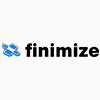Trust in opinion polls and pollsters was already at a low ebb given their failure to correctly predict the Brexit vote and Trump’s win, and now the Dutch election has defied polls – although this time the right-wing's popular option was on the losing side.
Geert Wilders’ PVV Freedom Party had been falling in the polls since the turn of the year, but was still expected to run Rutte’s VVD close. It hasn’t. VVD, although losing seats, will be comfortably the biggest party in the new Dutch Parliament and Rutte will likely take a third term as PM at the head of a new coalition. PVV will come second, but only just ahead of the centre-left democrat parties CDA and D66. The big loser was the current junior coalition party, the PvdA Labour Party.
The result means there’s no ‘Nexit’ in sight, and more importantly no momentum for populist parties in France and Germany. There was palpable fear from backers of the EU and the euro that a wave of populism would sweep across the continent in the wake of Brexit and threaten the entire bloc and single currency.
The relief is palpable. ‘”The Netherlands, oh the Netherlands you are a champion” Congratulations of the great result’ tweeted Peter Altmaier, German chancellor Angela Merkel’s chief of staff. French president, Francois Hollande, called the result a ‘clear victory against extremism’. ‘No Nexit. The anti-EU right has lost the Dutch elections. Now a common commitment to change and relaunch the Union’, tweeted Italy’s prime minister Paolo Gentiloni.
Wilders, who campaigned to take the Netherlands out of the EU and crack down on Islam by closing all mosques and banning the Koran, has pledged the Dutch electorate has not yet seen the back of him. Euro watchers will not care. The threat has passed for now and the focus can turn towards France, where Marine Le Pen of the National Front is threatening in the presidential election and to Germany, where the populist Alternative for Germany party is promising to come from nowhere to win many seats in the general election.
The timing of the election has been great for the euro bulls, with the Federal Reserve meeting around the same time causing the dollar to weaken and EUR/USD to spike. The pair hit its highest level since the early days of February, and with a wave of optimism taking over the European establishment, it would not be surprising to see the pair move back to the 2017 highs at $1.08 and potentially higher. Once again, predictions of doom for the euro have been premature.















































































